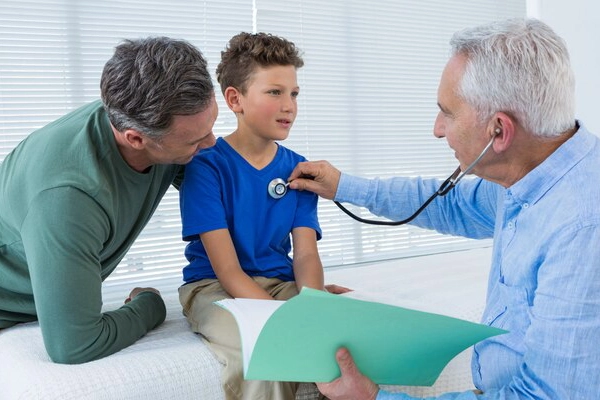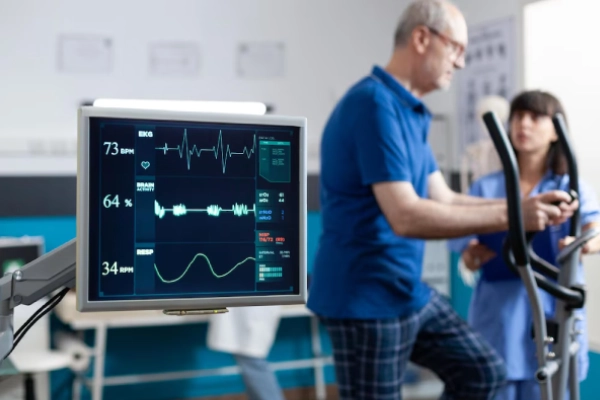Overview

Heart Failure Clinic
Heart failure (HF) is a disease sometimes known as congestive heart failure, occurs when the heart muscle is not able to pump blood as well as it should.
The prevalence of HF is approximately 1-2% of the adult population, rising to ≥10% among people more than 70 years of age. Among people more than 65 years of age presenting to primary care with breathlessness on exertion, one in six will have unrecognized HF.
Certain conditions, such as narrowed arteries in your heart (coronary artery disease) or high blood pressure, gradually leave your heart too weak or stiff to fill and pump efficiently. Basically, the heart can't keep up with its workload. Patients with HF may require repeated hospitalization, advanced investigations and advanced treatment options. A multidisciplinary team (MDT) approach is considered the gold standard model for the delivery of HF care.
Heart failure Team
Recognizing the need for team work Heart failure clinic was inaugurated in GKNM Hospital in September 2014. The Heart Failure Clinic was rededicated on the 14th of September 2014 in a function at GKD Auditorium which was graced by Dr Richard Daly, the Chairman and Director of Heart failure, Transplantation from Mayo Clinic, Dr Catherine Sudarshan Cardiac Transplant Surgeon from Papworth Hospital, England and Dr Jai Raman Transplant surgeon from Portland, Oregon. The heart failure clinic will closely collaborate and work with these 3 institutions for the further development of this subspecialty. Recently the heart failure clinic has been expanded with more scope for effective treatment of its patients and the registry has been created. Dr Shanmugasundaram runs the Heart Failure Clinic. Dr P Chandrasekar the chairman of cardiothoracic surgery and Director of Heart Failure and Transplantation is heading this program.
Our team consists of a dedicated Cardiologist trained in Advanced Heart Failure & Heart Transplantation, an Electro physiologist who takes care of heart rhythm related abnormalities and advanced device based therapies, Cardiac surgeons who are trained in Left ventricular assist devices, and Cardiac transplantation, trained clinical Heart failure Nurse to educate you about your medications, adjust your medications, monitors and prevents adverse drug reactions, Trained Physiotherapists, who ensures effective rehabilitation of patients with Heart failure to improve quality of life and trained dietitian, who tailors salt and fluid prescriptions according to the clinical situations and reinforce whenever clinically indicated.
- Heart failure counselling
- Training in self-management
- Guideline directed medical therapy
- Heart failure Rehabilitation Centre
- Six minute walk test
- Ambulatory Inotropic Therapy
Heart failure counselling
Our trained paramedics counsel the patients, so that they understand their illness, medications and treatment options for the patients during their hospital stay.

Cardiac Resynchronization Therapy and Implantable Cardioverter Defibrillator
- Implantation
- Heart Transplantation
Implantation
- Cardiac resynchronization therapy is a procedure to implant a device in your chest to make your heart's chambers contract in a more organised and efficient way. The signals tell your ventricles to contract at the same time, maximizing the amount of blood that's pumped out of your heart. These are high end implantable devices which help the heart to improve its efficiency and also regulate its rate. They are lifesaving in many of the situations.
- An implantable cardioverter-defibrillator or automated implantable cardioverter defibrillator is a device implantable inside the body, able to perform cardioversion, defibrillation, and pacing of the heart. The device is therefore capable of correcting most life-threatening cardiac arrhythmias.



